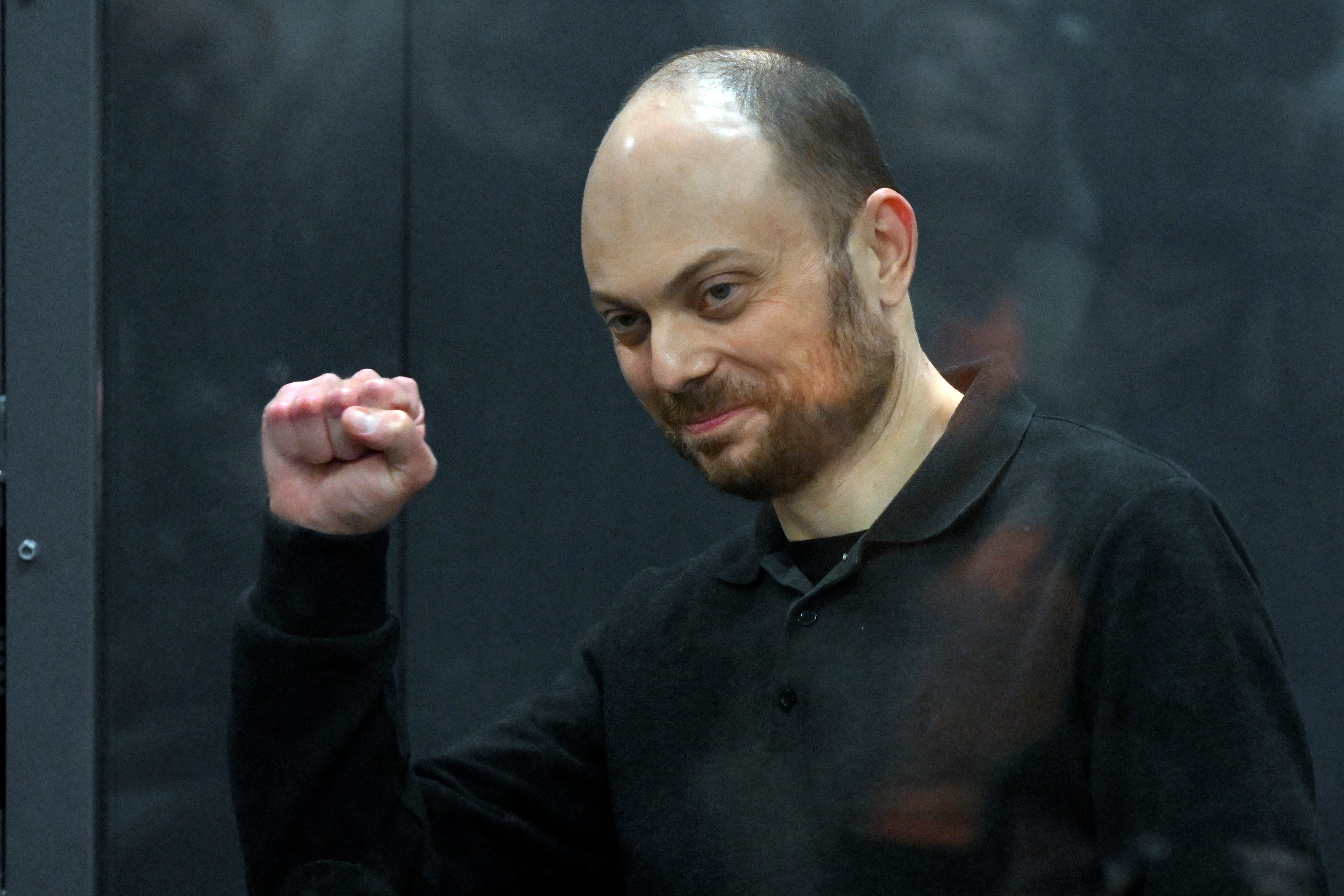Jailed Putin critic Vladimir Kara-Murza transferred to Siberian prison hospital, wife says
The opposition leader is serving longest sentence handed to a Kremlin critic since fall of Soviet Union

Jailed British-Russian opposition leader Vladimir Kara-Murza has been transferred to a Siberian prison hospital, his wife has said.
The 42-year-old – a leading Kremlin critic who has survived two poisoning attempts – is serving a 25-year jail sentence after repeatedly condemning Russia’s war in Ukraine and calling for Western sanctions against Moscow. The charges have been roundly condemned by Western nations, including the UK
Mr Kara-Murza was transferred on Thursday evening to the hospital in Omsk prison, where he is jailed, according to his wife Evgenia, who said his lawyers had waited five hours to see him but were denied visitation rights.
In the wake of Putin critic Alexei Navalny’s death in an Arctic penal colony in February, Ms Kara-Murza has expressed frequent concerns about the health of her husband, whom she says suffers from a nerve condition called polyneuropathy as a result of the previous attempts on his life.
Mr Kara-Murza was arrested in April 2022, accused of spreading false information about Russia’s military and declared a “foreign agent”, hours after CNN broadcast an interview in which he said Moscow was run by a “regime of murderers”.
A former journalist, he was later charged with treason over speeches he gave about the war, including one to the Arizona House of Representatives in March 2022 in which he said Russian president Vladimir Putin was bombing Ukrainian homes, hospitals and schools. Moscow claims it does not deliberately target civilians although thousands have been killed in Ukraine.
He was eventually sentenced to 25 years in prison – which remains the longest sentence handed down to a Kremlin critic since the fall of the Soviet Union in 1991.
Mr Kara-Murza lost an appeal against his conviction in May, the month he won the Pulitzer Prize for commentary for columns which he wrote from prison and were published in The Washington Post.
The news of his transfer to hospital came as Kyiv’s navy chief claimed that Ukrainian attacks had forced Russia to remove nearly all of its combat-ready warships from occupied Crimea.
Vice Admiral Oleksiy Neizhpapa revealed the extent to which Russia’s main naval base at Sevastopol had been damaged by Ukrainian attacks, in a rare interview published as Western leaders condemned a visit by Hungary’s Viktor Orban to meet with Vladimir Putin in Moscow.
The naval commander said Ukraine had destroyed or damaged 27 naval vessels, including five that he said were destroyed by sea mines laid by Ukrainian naval drones near the Bay of Sevastopol.
He said Ukrainian missile and naval drone strikes had caused heavy damage to the Sevastopol base, a logistics hub for repairs, maintenance, training and ammunition storage among other important functions for Russia.
“They were established over many decades, possibly centuries. And clearly, they are now losing this hub,” Vice Admiral Neizhpapa told Reuters in a rare interview in the port city of Odesa ahead of Ukraine Navy Day on Sunday.
Meanwhile, Mr Orban’s visit to Moscow drew rebuke from Ukraine and other Western leaders.
Hungary assumed the six-month rotating presidency of the European Union on Monday. Following a visit to meet Volodymyr Zelensky in Kyiv earlier this week, Mr Orban has now gone on a self-described “peace mission” to Moscow – in a move Ukraine said was not coordinated with Kyiv.
“We remind you that for our state, the principle of ‘no agreements on Ukraine without Ukraine’ remains unshakable and call on all states to observe it strictly,” Ukraine’s foreign ministry said in a statement.
Mr Orban insisted that peace cannot be made “from a comfortable armchair in Brussels”, with Mr Putin claiming he was ready to discuss the “nuances” of proposals to end the war in Ukraine.
But European Commission president Ursula von der Leyen said that only unity and determination would pave the way to a just and lasting peace in Ukraine. She warned that “appeasement will not stop Putin”, while outgoing EU chief diplomat Josep Borrell said Mr Orban was “not representing the EU in any form”.
Additional reporting by Reuters
Join our commenting forum
Join thought-provoking conversations, follow other Independent readers and see their replies
Comments
Bookmark popover
Removed from bookmarks